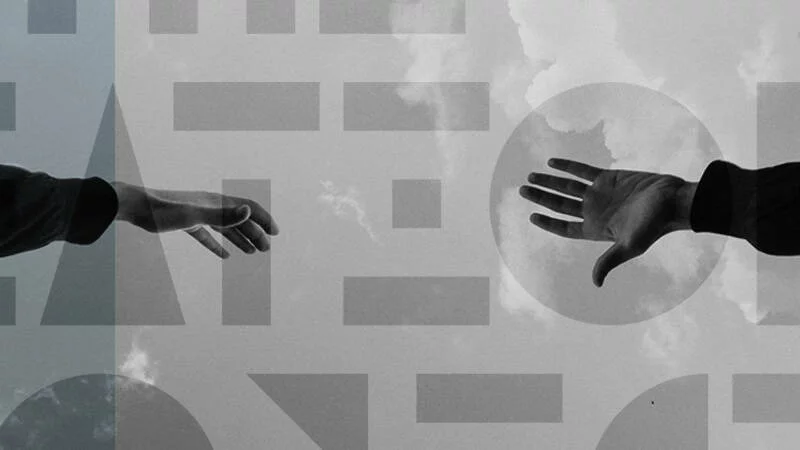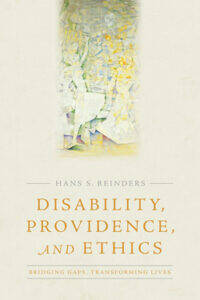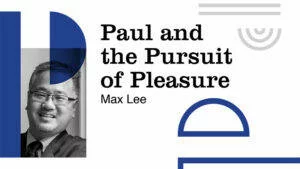Providence can be difficult to understand in the context of disability; and understanding the contours of this issue and the “conception of the universe, a particular way of looking at the world and our temporal existence in it” (p. 3) that lies behind all answers, is what Hans Reinders’s book Disability, Providence and Ethics: Bridging Gaps, Transforming Lives (Baylor University Press, 2014), is about.
The Wisdom of Asking Why
When faced with disability, Reinders writes, it is almost universal for people to ask two questions: ‘why,’ and ‘why me?’ People feel cheated out of life. “The underlying principle of justice is always suum cuique, ‘to each his due’” (p. 44). “A strong motive in responses raising the issue of justice resides in a sense of fairness . . . People ought to get what they deserve; at any rate they ought to be spared from what they do not deserve” (p. 45). Advice from medical sources, Reinders says, is often to resist asking these questions. There seems to be a general feeling that asking why is unhelpful and will prevent people from moving on: spending time “lamenting ‘why?’ does not help” (p. 35).
Yet Reinders is skeptical about the usefulness of this approach. “No doubt there is practical wisdom in this advice, but something is missing too” (p. 35). Telling people not to ask the question does not take grief seriously. Moreover, asking why is more than expressing a feeling; it is a worldview question. “Part of their agony is that they find the world they knew shattered. It is falling apart, and they themselves seem to be falling apart also” (p. 36). Is there anything more to say? Can we do more than just explain away the question as a natural longing for (unavailable) certainty? Even if asking why does not ‘help,’ that’s no response; “people do not lament a traumatic experience because it will help them in any way, or make them feel better, but because they are grieving” (p. 36).
People, then, want answers—but religion often provides particularly bad answers. These answers might suggest that the tragedy is a result of unrepentant sin in the sufferer, or a lack of faith, or a lack of prayer, or some such. Reinders dismisses these as ‘cheap theology.’ He goes on to suggest that traditional formulations of providence are also unable to provide the right kind of answers. Traditionally, especially as seen in Calvin’s theology, providence is discussed in terms of causality. It describes God as in causal control of all things, yet fails to explain why bad things can happen; this remains simply part of God’s hidden justice, which we do not understand. Reinders presents himself as offering an alternative to this view.
Stories of Disability
This book is also an analysis of stories of disability, the stories people tell about it. Here we see, either explicitly or implicitly, how people make sense of their experience, or at least create a story to contain the unsense of it. People tell stories; that is what we do. This book shows the worldviews, the frameworks, particularly the ideas about providence that exist in these stories. They will be there, one way or another.
There are four main stories analysed here. Martha Beck has written Expecting Adam about the experience of having a son born with Down syndrome. From her initial experience of seeing this as a disaster, she eventually comes to see her son as a delight and a blessing, one who taught her about love and about how barren her previous view of the world was, her sense of ambition and her definition of disability. She is transformed as a person and in what she thinks life is for.
Here we see, either explicitly or implicitly, how people make sense of their experience, or at least create a story to contain the unsense of it. People tell stories; that is what we do.
This, for Reinders, is an example of his revised view of providence. “It has little to do with natural causation, because it is about transformation. Living with Adam helped Martha to overcome her fears, but not by means of supernatural intervention” (p. 72). God did not do a ‘miracle’ and change Adam’s chromosomes; but by giving Martha Adam, he did show her a different way of living.
Another story is of Jean-Dominique Bauby, who suffered a stroke and was left with locked-in syndrome, so he could communicate only through blinking his left eyelid. By doing this he wrote a book, The Diving Bell and the Butterfly. His present was all loss and grief; but by the end of the book, there is a hint that he is coming to a sense of a new life. Unfortunately he died soon afterwards, so we are not able to see whether there might have been further transformation.
Where is the Mango Princess tells the story of Alan Forman, who had a traumatic brain injury, told by his wife Cathy Crimmons. There is less of a ‘happy’ ending to this story; Cathy felt that her husband was a different person and could only find loss in what had happened. The last story, told after chapters discussing Job and Calvin and Reinders’s views of each, is the only one written from an explicitly Christian viewpoint: Amy Julia Becker’s book A Good and Perfect Gift, about the family’s experience with their daughter Penny, born with Down syndrome.
Placing Suffering in a Story
What Reinders eventually presents is not exactly a traditional view of providence; in fact he carefully distances himself from Calvin, and re-reads Job, to come to what he sees is a better, and more pastorally helpful, view. “Providence is God’s presence,” he writes (p. 167).What Reinders eventually presents is not exactly a traditional view of providence; in fact he carefully distances himself from Calvin, and re-reads Job, to come to what he sees is a better, and more pastorally helpful, view. “Providence . . . is about how the love that God sends into our lives guides us in discovering a new self” (p. 180). The issue is not ‘why has God allowed this’ but a dawning understanding of how God’s presence is transforming one’s life. ‘Why’ becomes the wrong approach, particularly in the light of Calvin’s view that the answer is hidden in God and not available. Reinders finds this view of providence cold and unhelpful. “When an account of God’s justice is cast in terms of ‘hiddenness,’” Reinders comments, “then we will feel the need to ask what the difference is between God’s ‘hidden justice’ and arbitrariness” (p. 127). For him, the two things seem much the same. This traditional Calvinistic view—that God is in control, but we cannot know his ways—gives no comfort to the sufferer. Appealing to the inscrutability of God is the same as saying there is no explanation for suffering. From Calvin’s classical doctrine of providence it is unlikely that people find the comfort and trust in the future, the sense of purpose in their lives that they were looking for. “There is no meaning and purpose to be found there, because meaning and purpose remain hidden in God’s secret plan” (p. 158).
Reinders is convinced that how we experience suffering is almost entirely a matter of how we tell its story—or rather, in which story (or framework, or worldview) we place it. Reinders also points out the need for lament, and that understanding is not necessarily explanation but discovery (p. 160). Those who are able to come through suffering, discovering more of what it means to love and to appreciate life itself, seem to be those who have truly discovered more about God through their experience. Indeed, this seems to be where Reinders’s view and Calvin’s truly come together: “If we take this as our lead, then Calvin’s claim that God will illuminate the minds of his own with the spirit of discernment falls right in place” (p. 160).
People can be changed by disability, Reinders concludes: “They are changed into a new self that enables them to negotiate the gap between the ‘before’ and ‘after’ by trusting the reality of friendship and love” (p. 189). They can move from an old self to a new self, so that providence is “the active presence of God, mediated by the Spirit, to guide us in learning to see the new life that is around us” (p. 190). In this way, suffering does not have to be the last word; it can even become, for those changed by it, a blessing. That is what he sees as truly an act of providence.








Comments
Be the first one to make a comment!